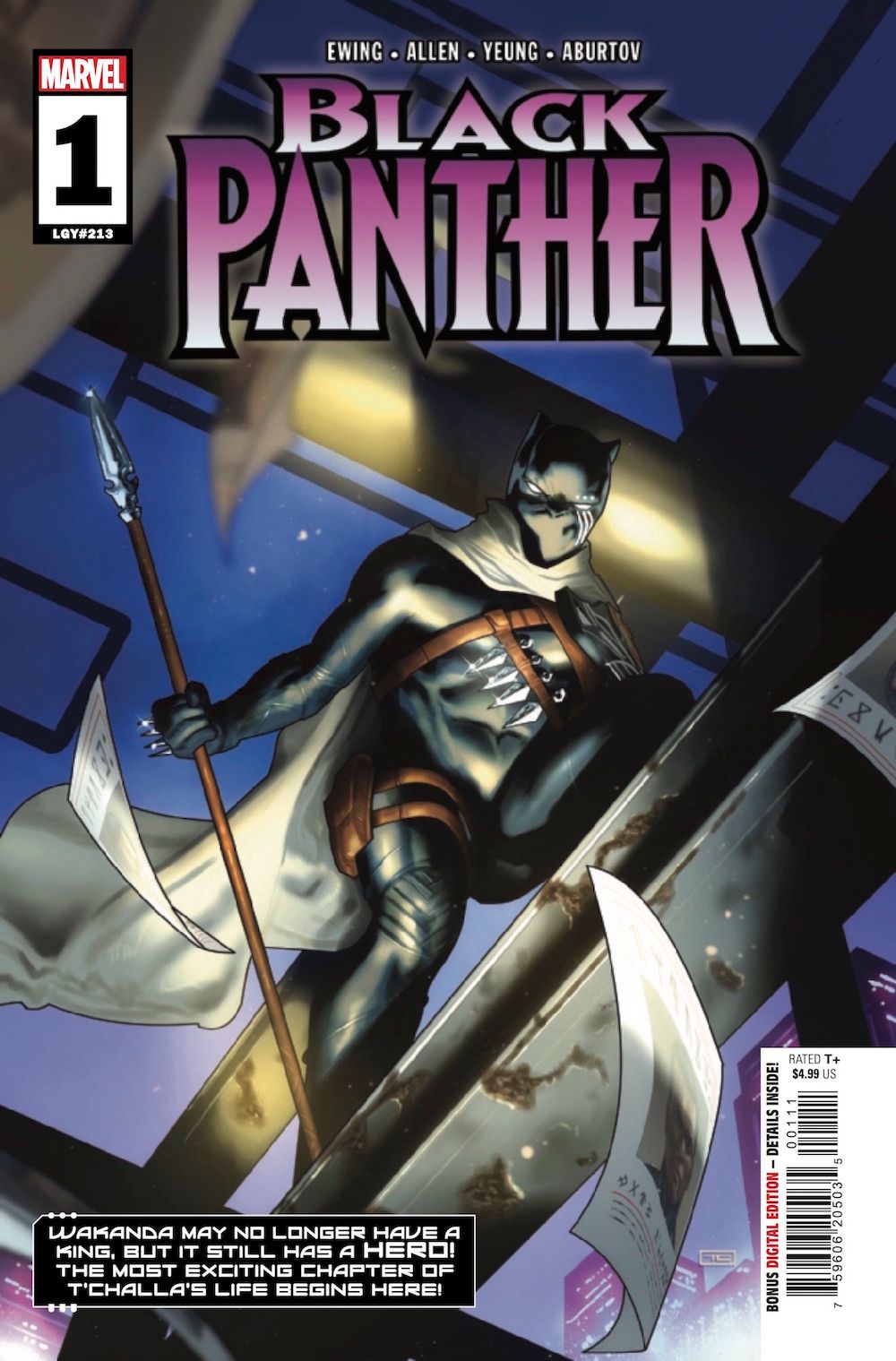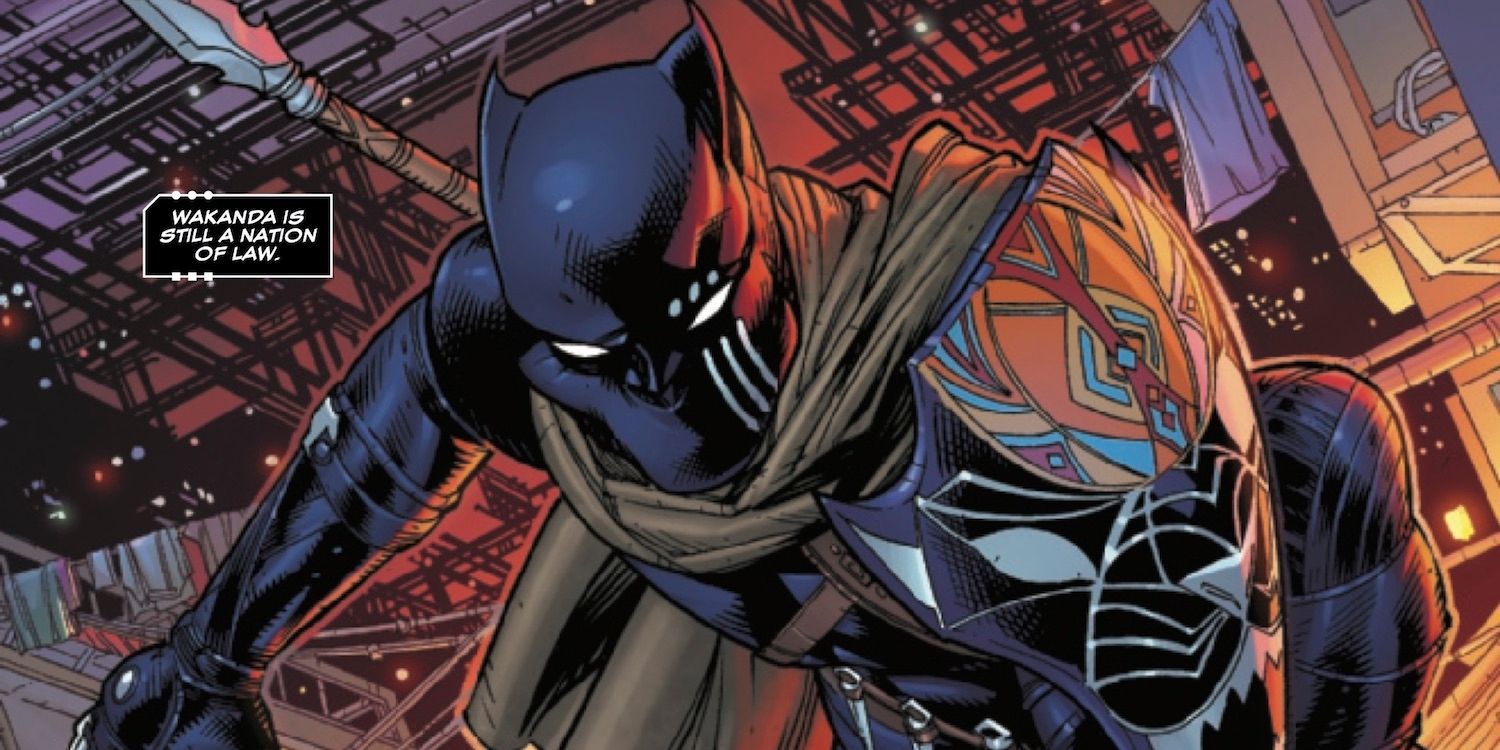Wakanda has undergone a transformation–one that has deprived T'Challa of his royal title and his role as the Black Panther. Having gone from monarchy to parliamentary democracy, Wakanda is going through a period of unrest and chaos, verging on civil war and collapse. Seemingly to quell the threat of uprising, the prime minister sent T'Challa away, rendering him a fugitive in the nation of which he was once king.
Though he may have been stripped of his crown, his throne, his title and even his right to live in his own homeland, T'Challa is still a hero–and he still has a duty to fulfill to protect Wakanda as the Black Panther. Written by Eve L. Ewing, with pencils and inks by Chris Allen, additional inks by Craig Yeung, colors by Jesus Aburtov and letters by VC's Joe Sabino, Black Panther #1 introduces a new chapter for Wakanda, and the hero it cast away.
While Black Panther #1 isn't without action or movement, T'Challa gets plenty of opportunities to demonstrate his intact sharpness as a hero and fighter in the beginning and closing sequences. Black Panther #1 is quieter and more contemplative in tone, serving as a slow-burning character study with existentialist themes. T'Challa spends much of this issue patrolling the metropolis Birnin T'Chaka -- named for his father -- watching the citizens trying to live, observing their lives and the growing unrest, trying to make sense of the new world Wakanda was becoming.
More than anything, T'Challa attempts to understand his people as much as he trues to understand himself, overwhelmed by a need for purpose and self-knowledge after everything he used to identify with: king, superhero, Black Panther, Wakandan, and leader have all been stripped away. As hard as it is to see such a beloved hero struggle with something so complex and psychologically painful, not to mention seeing his weaknesses and insecurities as both a persona and a superhero, it's a fresh and human take on the character, granting him potential for great depth and development.
There's a level of nuance, subtlety, and maturity to Eve Ewing's writing. Throughout this issue, there are sequences that weigh the pros and cons of monarchies vs. democracies. The people of Wakanda, the citizens of the urban landscape Birnin T'Chaka, and even T'Challa himself all ponder on their current predicament, whether life is better under the monarchy or the current democracy, and no answer is given. Similarly, T'Challa ponders over his relationships with his fellow Wakandans, his past, his family and the Avengers. Rather than come to a conclusion, Ewing leaves both T'Challa and the readers to think for themselves for this issue which is a trend that appears set to continue for the remainder of this series.
Despite offering a subtle story, Black Panther #1 is visually intense, being colorful, vibrant, and chock-full of complex and intricate landscapes and cityscapes worthy of any cyberpunk title. Looming towers, sparkling windows, glowing bridges, highways and cars fill the pages, occupied by crowds of unique faces and textiles. Artists Chris Allen and Craig Yeung have a deft understanding of space, composition, layout, and visual pacing. Although the panels are crammed with intense visuals and a staggering amount of detail, they never feel too overwhelming. However, Yeung and Allen's line art can be too uniform, especially with the line weight. There's a consistent level of thickness to the lines that can make it hard to differentiate foreground from background, leaving otherwise excellent scenes looking a bit flat. Colorist Jesus Aburtov's colors add to the depth and breadth of the landscape, preferring bold jewel tones of gold, azure, violet, sunset hues and gentle gradient lighting. The softness and elegance of the colors, especially with the lighting and shading, add a degree of tenderness to the Film Noir vibe of the developing narrative.
Black Panther #1 is a subtle and humane study of a changing character and shifting fictional landscape. Although a slow burn in turns of action, and offers questions with no easy answers, this issue is worth checking out precisely for those reasons.



